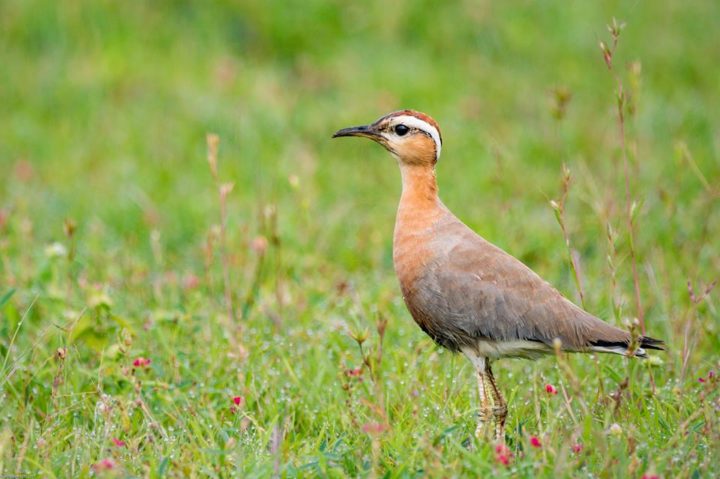24
Sep
Study Finds Three Billion Birds Lost Since 1970: “Early mornings are strangely silent where once they were filled with the beauty of bird song”
 (Beyond Pesticides, September 24, 2019) “Over increasingly large areas of the United States, spring now comes unheralded by the return of the birds, and the early mornings are strangely silent where once they were filled with the beauty of bird song,” Rachel Carson wrote in Silent Spring in 1962. New research finds that quote has held true since it was written. Over three billion birds, or 29% of 1970s abundance have been lost in North America over the last 50 years.
(Beyond Pesticides, September 24, 2019) “Over increasingly large areas of the United States, spring now comes unheralded by the return of the birds, and the early mornings are strangely silent where once they were filled with the beauty of bird song,” Rachel Carson wrote in Silent Spring in 1962. New research finds that quote has held true since it was written. Over three billion birds, or 29% of 1970s abundance have been lost in North America over the last 50 years.
To make these dismal determinations, scientists drew from multiple long-term bird monitoring datasets, and a network of nearly 150 weather radars that pick up and thus have recorded the trajectory of migratory birds. Long-term surveys helped scientists determine the 3 billion bird decline, while satellite data found that migratory bird abundance has declined by 9.1% since 2007.
In general, 57% of bird species are in decline, with showing the largest loss. Ninety percent of all declines were within 12 bird families: American sparrows, warblers, blackbirds, larks, Old world sparrows, swallows, nightjars, swifts, finches, flycatchers, starlings, and thrushes. Only waterfowl and wetland bird species showed any increase, 13% and 56%, respectively. Ducks, geese, and raptors all improved population levels more than 50% since 1970.
Importantly, researchers caution that their results are conservative, as only breeding populations were estimated, and true losses in the wild could be even worse.
Like other declines the world is currently witnessing, there are a range of threats contributing to losses. Advocates urge that business as usual is unacceptable and devastating, as the call to enact solutions is at a crisis level. As the authors note, North American declines are not unlike those being witnessed in other areas of the world. “In particular,” the study reads, “depletion of native grassland bird populations in North America, driven by habitat loss and more toxic pesticide use in both breeding and wintering areas, mirrors loss of farmland birds throughout Europe and elsewhere.”
Just last week, Beyond Pesticides reported on research linking the use of neonicotinoid insecticides to the silent demise of songbirds. As co-author Christy Morrissey, PhD, told Environmental Health News, there are “already replacements for neonics—and they’re just as toxic as neonics, they’re just a different name.” To fix the problem, focus should be on the “need to change the whole system to make it more resilient.” She indicated, “We should incentivize farmers to diversify systems rather than substituting one chemical for another.”
As Dr. Morrissey’s message indicates, our charge is both farther-reaching and more sinister than simply eliminating one pesticide or pesticide class. As the current study shows, banning DDT and other organochlorine insecticides resulted in raptors and other birds of prey significantly increasing their overall population. But protecting songbirds and other species lower on the food chain will required a change not just in chemical use, but in our entire approach to land management and food production.
Rachel Carson warned the world how insidious pesticide use can be. She wrote in Silent Spring:
“For each of us, as for the robin in Michigan or the Salmon in the Miramichi, this is a problem of ecology, of interrelationships, of interdependence. We poison the caddis flies in a stream and the salmon runs dwindle and die. We poison the gnats in a lake and the poison travels from link to link of the food chain and soon the birds of the lake margins become its victims. We spray our elms and the following springs are silent of robin song, not because we sprayed the robins directly but because the poison traveled, step by step, through the now familiar elm leaf-earthworm-robin cycle. These are matters of record, observable, part of the visible world around us. They reflect the web of life — or death — that scientists know as ecology.”
Thus this report on bird losses is more than a report on birds, it’s a report on gnat, caddisfly, and earthworm declines, on species that create the foundation of the food web. Ecological effects ripple up and down the food chain, resulting in trophic cascades that effect all life in a region.
It’s clear that industrial agriculture is contributing to the insect apocalypse, as well as declines in birds and other yet unknown species. Yet we also know that, by eschewing pesticide use, focusing on soil health, diversification, and sustainable practices, organic and regenerative farming and land management can help reverse this decline. Join this effort by purchasing organic whenever possible, planting diverse pesticide-free habitat on your property, and encouraging your local community to follow suit. Initiatives in cities like Amsterdam, Netherlands show that this is an issue we can still address.
Critically, we must also fight for the backstops that prevent the complete loss of species. Take action to protect the Endangered Species Act against the current administration’s attacks by contacting your member of Congress today.
All unattributed positions and opinions in this piece are those of Beyond Pesticides.
Source: Science (peer-reviewed journal)











pestisides hurt every species on earth in the name of progress
January 13th, 2020 at 3:12 pm